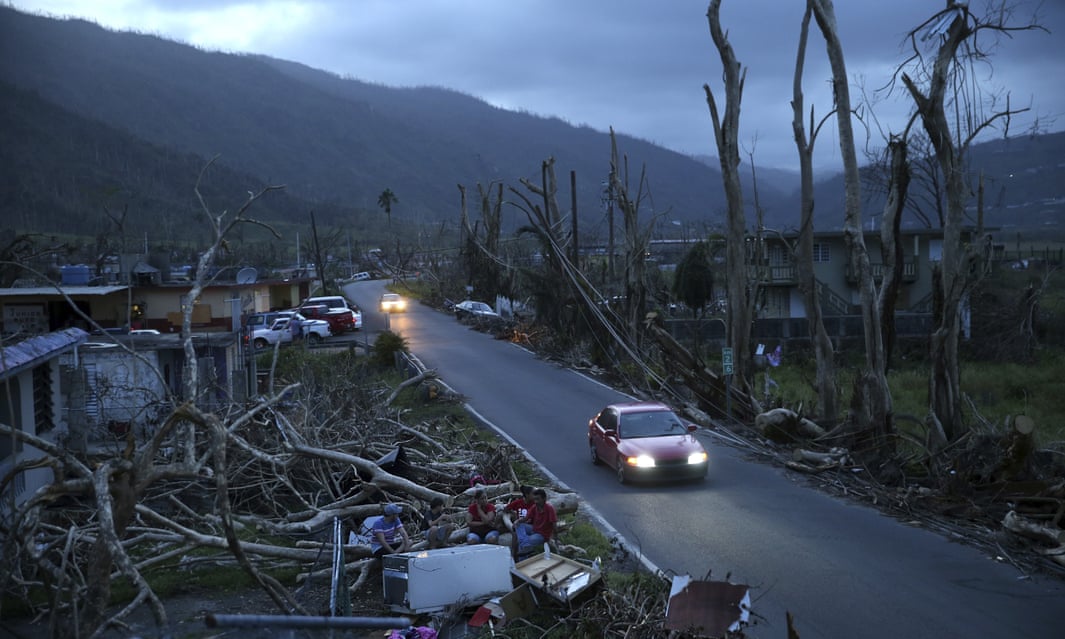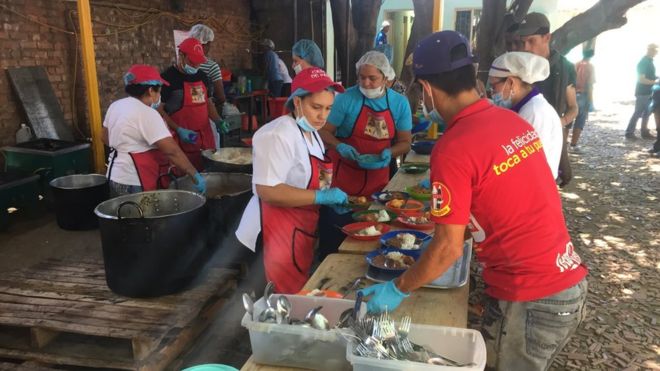FREDERICK K. COX INTERNATIONAL LAW CENTER Founder/Advisor |
War Crimes Prosecution Watch
Volume 12 – Issue 15 |
Editor-in-Chief James Prowse Technical Editor-in-Chief Managing Editors |
War Crimes Prosecution Watch is a bi-weekly e-newsletter that compiles official documents and articles from major news sources detailing and analyzing salient issues pertaining to the investigation and prosecution of war crimes throughout the world. To subscribe, please email warcrimeswatch@pilpg.org and type “subscribe” in the subject line.
Opinions expressed in the articles herein represent the views of their authors and are not necessarily those of the War Crimes Prosecution Watch staff, the Case Western Reserve University School of Law or Public International Law & Policy Group.
Contents
AFRICA
CENTRAL AFRICA
- Relief Web: Civilians ‘Direct Targets’ as Conflict Spreads in Central African Republic
- UN News Centre : Fresh violence in Central African Republic leads to more displaced – UN agency
- The Hill: Central African Republic turns a blind eye to the persecution of Muslim minority
- Africa News: Over 100 Eritreans deported by Sudan, others jailed: U.N. deeply concerned
- The Citizen: US calls on Sudan to probe Darfur camp clashes
Democratic Republic of the Congo
- Reuters: Locked in power struggle, Congo army and militia massacred hundreds: report
- Relief Web: One peacekeeper killed in Beni territory
- UN News Centre: DR Congo: UN agency urges Government to protect refugees after tragic killings
- Daily Mail: US, EU slam DR Congo army for using ‘excessive force’
- UN News Centre: DR Congo: Security Council condemns attack against UN peacekeeping mission
WEST AFRICA
- Daily Mail: Ex-Army Chief Testifies in Gbagbo Trial at ICC
- Reuters: Former Ivory Coast President Gbagbo to Remain in Detention for Trial: ICC
Lake Chad Region — Chad, Nigeria, Niger, and Cameroon
- Newsweek: Terrorism in Africa: Ending Violence in Mali Starts With Building Communities
- AllAfrica: UN Secretary-General Condemns Killing of Peacekeepers in Mali
EAST AFRICA
- BBC NEWS: Kenya election: System ‘cannot be ready’ for October poll
- All Africa: Bounty Offered for Al—Shabaab Terror Kingpins
Rwanda (International Criminal Tribunal for Rwanda)
- The New Times: Rwanda: Genocide — France Can Keep the Archives — The Truth Is There for All to See
- The McGill International Review: Kagame and The Congo
- eNCA: French bank probed for alleged complicity in Rwandan genocide
NORTH AFRICA
- The Guardian: General accused of war crimes courted by west in Libya
- Aljazeera: Libyan rights groups accuse UAE of war crimes
- Reuters: Rescue ship says Libyan coast guard shot at and boarded it, seeking migrants
EUROPE
Court of Bosnia & Herzegovina, War Crimes Chamber
International Criminal Tribunal for the Former Yugoslavia
- Balkan Insight : Serbian State Security Chief Denies Controlling Arkan
- Balkan Insight : Serbia’s Seselj Mocks Hague Tribunal in Reality Show
- Balkan Insight : Yugoslav Army ‘Armed Serb Forces in Croatia’
- Balkan Insight : Vojislav Seselj Rejects Warning From Hague Tribunal
- Balkan Insight : Hague Tribunal Extends Jovica Stanisic’s Release
Domestic Prosecutions In The Former Yugoslavia
- Balkan Insight: Belgrade Jail Warden Faces Retrial for Milosevic ‘Kidnap’
- B92: Captain Dragan sentenced to 15 years by Croatian court
MIDDLE EAST AND ASIA
- Iraqi News: Islamic State’s second executioner killed in month, southwestern Kirkuk
- The Washington Post: UN may vote soon to help Iraq collect evidence against IS
- ABC News: The Latest: Iraq PM says Mosul abuses not systematic
- The Washington Times: Final showdown with Islamic State raises worries about civilian casualties
- The Washington Post: Germany arrests 2 Islamic State suspects in Berlin
- ABC News: UN votes to help Iraq collect evidence against Islamic State
- Human Rights Watch: Iraq: Missed Opportunity for Comprehensive Justice
- The Washington Post: The Latest: Activists say 20 dead in east Syria strikes
- The Sun: None of the 400 British citizens who fought with ISIS in Syria before coming back have been charged with war crimes
- Forbes: Victims Of The Daesh Genocide Still Waiting For Assistance
- The Washington Post: Germany: Syrian refugee jailed over UN observer’s abduction
- Al Jazeera: ‘Deadly air strikes’ target hospitals in Syria’s Idlib
- ABC News: 4 men accused of killings in Syria go on trial in Germany
- BBC News: US—led strikes killed 84 civilians in Syria — HRW
- The New York Times: Iran Is Smuggling Increasingly Potent Weapons Into Yemen, U.S. Admiral Says
- The Los Angeles Times: ‘No hope on the horizon’ for Yemen, U.N. humanitarian official says
- The Guardian: US-made bomb killed civilians in Yemen residential building, says Amnesty
- The New York Times: Saudi Arabia Resists Independent Inquiry on Yemen Atrocities
Extraordinary Chambers in the Courts of Cambodia
- The Daily Star: STL schedules hearing to discuss indictment
- The Daily Star: STL quibbles over cellphone attributions
- The Daily Star: Coverage maps somewhat inaccurate: STL testimony
- The Daily Star: STL defense contests phone
Bangladesh International Crimes Tribunal
- Dhaka Tribune: International Crimes Tribunal to get new chairman soon
- BD News 24: Hasina floats Bangladesh’s proposals at UN to end Rohingya crisis forever
- Dhaka Tribune: Bangladesh PM at UNGA: 1971 genocide should be recognised internationally
War Crimes Investigations in Burma
- Vox: The World’s Fastest-Growing Refugee Crisis is Taking Place in Myanmar. Here’s why.
- Independent: Rohingya crisis: Hundreds of Buddhists gather to block aid shipment reaching Burma’s fleeing Muslims
- Human Rights Watch: Crimes against Humanity by Burmese Security Forces Against the Rohingya Muslim Population in Northern Rakhine State since August 25, 2017
AMERICAS
- Just Security: Smoking Gun Videos Emerge: US Citizen, Libyan Warlord Haftar Ordering War Crimes
- Newsweek: Trump Could Be Guilty Of War Crimes After An American Bomb Killed Yemeni Children
- Reuters: El Salvador launches commission to find those missing from civil war
- TeleSUR: Argentina Sentences 6 to Life in Prison for Crimes Against Humanity During US-Backed Dirty War
- Bloomberg: Venezuela Spurns Travel Ban, Calls U.S. Major ‘Rights Violator’
TOPICS
Truth and Reconciliation Commission
- Nepal Times: Rights Right Here at Home
- Ashland Daily Tidings: What We Can Learn from South Africa about Reconciliation
- Huffington Post Holdings: What Happened To the Reconcilation Project?
- The News International: Central Jail Officials Guilty of Aiding and Abetting Terrorists: CTD
- Vancouver Sun: Fort St. John Man Acquitted on Four Terrorism Charges
- Belfast Telegraph: PPS May Appeal Prison Sentences of Dissident Bombers Due to ‘Leniency’
- Maritime Executive: Coast Guard Leaders to Collaborate on Piracy and Pollution
- Maritime Executive: 11 Pirates Sentenced to Prison for Tanker Hijacking
- Daily Mail: UN to tackle claim it mishandles C. Africa rape cases
- Al Jazeera: ‘Thousands of women raped and assaulted’ in South Sudan
- Trib Live: UN peacekeepers in Congo hold record for rape, sex abuse
- Reuters: U.N. medics see evidence of rape in Myanmar army ‘cleansing’ campaign
- SF Gate: Increasing reports of sexual violence against Rohingya worry UN
- Daily Nation: Crimes of UN Officers Must be Tried by Fair, External Tribunal
- The New York Times: The Tiger Force Atrocities
- Independent: I’m All for War Crimes Trials in The Hague – So Long as We Agree to Prosecute Every Possible War Criminal
WORTH READING
- Leila N. Sadat: The Urgent Imperative of Peace: Seeking Accountability for the Unlawful Use of Force
—
You received this message because you are subscribed to the Google Groups “warcrimeswatch – War Crimes Prosecution Watch” group.
To unsubscribe from this group and stop receiving emails from it, send an email to warcrimeswatch+unsubscribe@case.edu
:format(webp)/cdn.vox-cdn.com/uploads/chorus_image/image/56960345/856501980.0.jpg)







